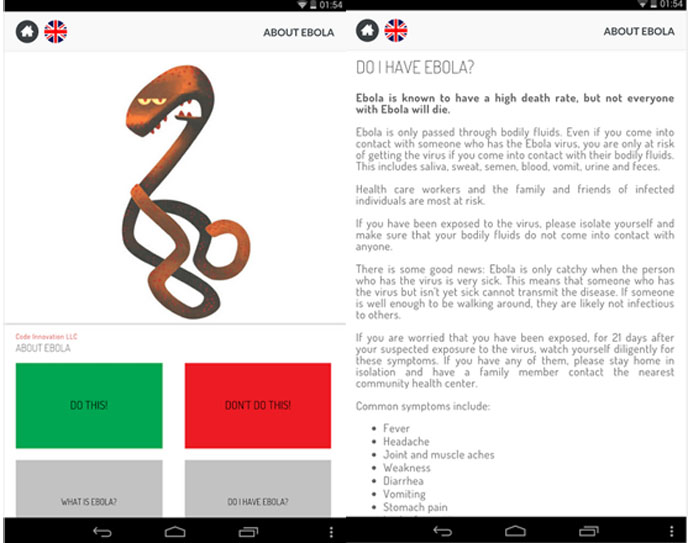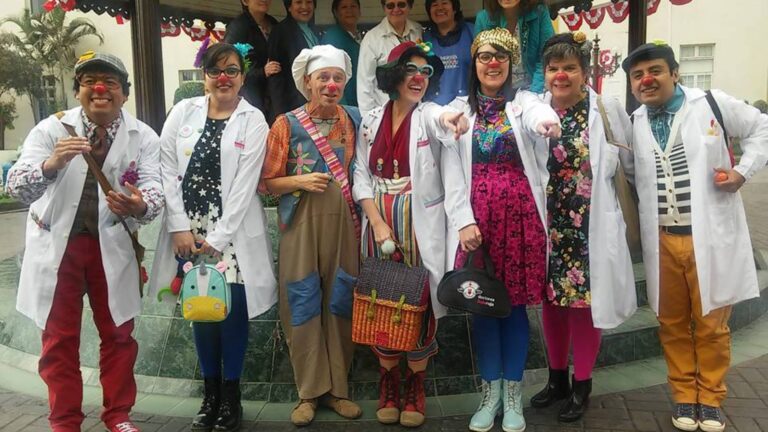
Health workers in Western Africa trying to contain the Ebola outbreak continue to voice the need for better communication with the local communities. So, West-African based tech company Code Innovation, with the help of a volunteer team from Chile, Lebanon, Kenya, Senegal and Gambia, turned to an Israeli technology to create a free “About Ebola” mobile application to support public health outreach and communication efforts to educate the public about Ebola viral disease.
The Snapp apps builder technology is the brainchild of Vito Margiotta, Assaf Kindler and Gabriel Gurovich from the Singularity University. Snapp lets anyone with an idea produce a mobile app from any smartphone via its free platform.
According to a Code Innovation press release, the app was created with the Snapp apps builder in response to WHO spokesperson Tarik Jasarevic saying, “What is really important is to inform the population of Guinea and Conakry about this disease, as this is the first time they are facing Ebola. They need to know what it is and how they can protect themselves.”
It took 11 days for the volunteers to build the informational Ebola app.
The content for the app was adapted from information on the websites of the US Centers for Disease Control and Prevention and the World Health Organization. It was translated into African languages including Wolof, Jola and Swahili by a team of volunteers. The Code Innovation team says other African language translations will be included as they are crowd-sourced from the wider public.
Kindler of Snapp told the Times of Israel that the platform is so easy to use that adding languages is a simple task. “It’s essential that people understand exactly what is going on, and to do that you have to communicate with them in their own language,” Kindler to the news site. “Using Snapp, anyone can build an app by clicking on a few buttons on their mobile device, so it was easy for the volunteers to install the languages into their app.”
Moreover, the villagers who own the smartphones are regarded highly in their communities.
“In almost all these villages there are at least one or two people with smartphones, and they are very highly regarded, both for their ability to access information from the outside world, and for their acumen in acquiring a device in the first place. So when they tell villagers that they should be doing a lot of washing with soap and water – one of the methods the app lists as a way to prevent Ebola – the villagers are likely to listen,” Kindler told Times of Israel.
















